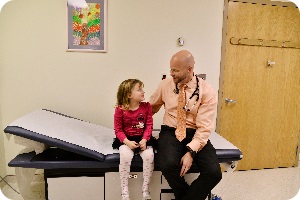Caring for Children with Special Healthcare Needs (CSHCN) is one of the most rewarding experiences for pediatricians, as well as one of the most challenging. It requires providing both family- and patient-centered pediatrics care in a highly coordinated way that current care models frequently do not bear in mind.
Children with special needs often need more time and communication with pediatric subspecialists, along with more health-related resources to coordinate a variety of therapies and school-based care, and navigate the network of insurance and home supply companies. They also need enhanced treatment management, considering that children with complex medical problems—including cerebral palsy, Down syndrome, prematurity and autism, for example—usually utilize acute care services and emergency rooms much more often than typical children.

Enter the primary care Medical Home to help. A Medical Home is not an actual structure, but rather a team approach to care that ensures:
- accessibility
- continuity
- comprehensiveness
- cost effectiveness
The National Council on Quality Assurance has established standards and guidelines to become a recognized Medical Home. In pediatrics, a Medical Home Initiative (MHI) model partners a team of providers with parents and patients to coordinate the family-centered care and communication necessary to improve health outcomes. For children with special healthcare needs, whose care involves a range of treatments and services, the Medical Home can be particularly beneficial.
At Children’s Specialized Hospital’s Primary Care Pediatric Practice, our team of physicians, nurses, care coordinators and staff already works together with families of special needs children. We strive to provide outstanding, coordinated pediatrics primary care that decreases unnecessary hospital visits, while enhancing health outcomes and, ultimately, the quality of life for our CSHCN and their families.